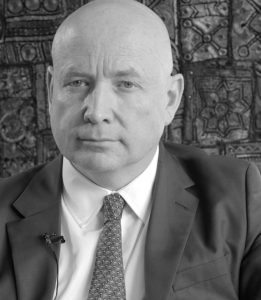The role of NEDs in the battle between love and fear
18 December 2020

One of the recurring themes to emerge from our series of webinar discussions about integrated care systems, which came to an end on Wednesday this week, has been the importance of interorganisational conversations and – perhaps just as vital – finding the time and space for those conversations to take place.
Time and again, we hear our guests talk about the dangers of siloed thinking, of making assumptions about other organisations, and even of focusing on our own structures and processes more than the health and wellbeing of the people we are here to serve.
Maintaining open and honest lines of communication – between agencies and with patients, carers and their families – is such a crucial part of averting these dangers and making the new integrated care model work.
That’s why keeping the dialogue going is so important. And that’s why we’re so delighted with the response there has been to our six-week series of webinars about the future of integrated care.
This week’s discussion flew by – just as the previous five did – and we were left knowing that we could have filled several more hours with the insights and questions offered by our guests.
The webinar was chaired with deft even-handedness by Mark Lam, Chair of Barnet, Enfield and Haringey Mental Health NHS Trust and of East London NHS Foundation Trust. Our guest speaker was GGI special advisor Professor Usman Khan, managing director of Modus Europe. And there were valuable contributions from Doctor Suzanne Shale, who works as a consultant in the area of ethics and culture in health and the public and third sectors, and Professor Mike Thomas, chair of University Hospitals of Morecambe Bay NHS Foundation Trust.
In his introductory remarks, Usman explored the role of non-executive directors in the development of ICSs and ICPs, highlighting some of the unknowns we all face as we move into the new integrated care model, looking at the role COVID-19 has played in changing the way health and care services are offered, and posing some questions designed to help non-execs navigate the difficult transition period we are in. Usman has kindly guest-written a bulletin on the subject for us.
Sharing is caring
His comments prompted a rich conversation that touched on many reasons to be optimistic about the new model – and a few causes for pessimism. One of our guests said: “Organisations not sharing their learning is endemic in the NHS. We don’t like doing our dirty washing in public – but that means secondary care organisations don’t learn from the experiences of primary care organisations.”
Another warned against the dangers of siloed thinking, saying: “Social care and local government organisations offer a direct conduit to the people we serve. We’ll lose a really big gain if we don’t integrate what they know about population health and the perspective that’s taken 30-50 years to take shape rather than NHS view developed over 5-10 years. We must look at integrated care through the lens of the police, housing, third sector etc or we’ll end up with just another NHS model.”
A third guest urged colleagues to remember that we all work within a ‘highly politicised system that’s heavily invested in not changing very much’ and to focus on what can realistically be achieved – especially in a period when the system is still working flat-out to cope with COVID-19.
The role of non-execs, said another guest, was to challenge – to act as the grit in the oyster – and to help executive colleagues find the right balance between short-term pressures and long-term visions. Another agreed, saying: “We should see NEDs as a moral compass. They should ask: what is the right thing to do? They should be part of the conversations of change of what sort of society we want, what are the wider needs of the community? They should not be fiercely aligned to their own organisation.”
Let’s close on a comment from Suzanne Shale, who shared the poem that follows and said: “This is a time for compassionate leadership. We’re all stuck in our little boxes because we’re afraid. The only thing that’s going to get us out of our boxes is the love and compassion we have for our service users and patients, their families and our colleagues. We mustn’t waste our time feeling fearful about the impact of ICSs and defending our own little patches.”
There are only two feelings.
Love and fear.
There are only two languages.
Love and fear.
There are only two activities.
Love and fear.
There are only two motives, two procedures, two frameworks, two results.
Love and fear.
Love and fear.
At GGI we’re focused on facilitating this important debate – of finding ways to ensure love triumphs over fear as we move into the brave new world of integrated care.
Look out for further opportunities to engage in the discussion in the new year. In the meantime, our thanks go to everyone who contributed to this excellent series.

A personal blog by Andrew Corbett-Nolan, Chief Executive, GGI

